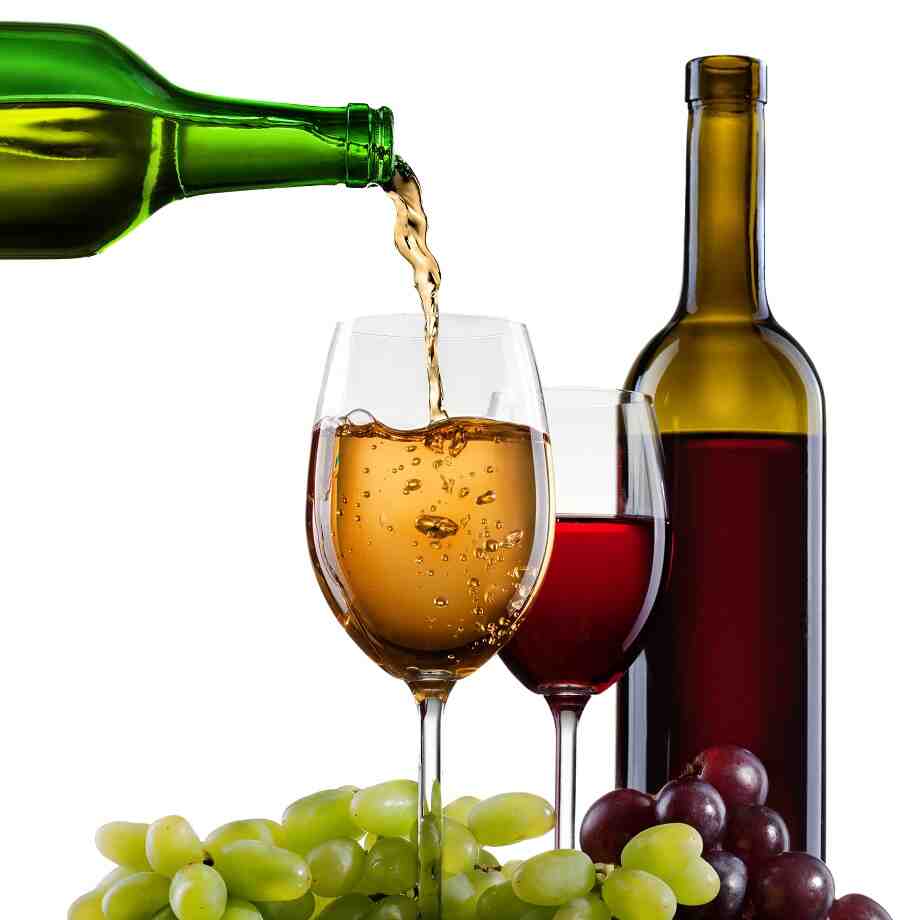The Truth About Wine and Weight Loss
When it comes to weight loss, there’s no shortage of myths and misunderstandings. One of the most debated topics is whether wine—particularly red wine—can be part of a healthy weight loss plan. With its potential health benefits, including heart-boosting antioxidants and a relaxing effect, many people wonder if they can indulge in a glass of wine while still shedding pounds. The truth is, wine can fit into a weight loss routine, but how it impacts your goals depends on several factors, including portion sizes, frequency, and the overall balance of your diet. In this article, we’ll uncover the truth about wine and weight loss, focusing on the potential pros and cons.
Wine and Caloric Content: The Basics
Before diving into how wine might impact your weight loss goals, it’s important to understand the basic calorie content in wine. Like all alcoholic beverages, wine contains calories, and those calories can add up quickly if you’re not mindful of how much you’re drinking. Here’s a rough breakdown:
- A 5-ounce glass of wine typically contains about 120-130 calories for dry wines, including red, white, and rosé wines.
- Sweet wines or dessert wines, which contain more sugar, can have significantly higher calorie counts, often exceeding 200 calories per glass.
The key here is moderation—if you enjoy wine but want to lose weight, you’ll need to be mindful of the calories you’re consuming, and how they fit into your overall daily calorie goal.
The Role of Alcohol in Weight Loss: A Double-Edged Sword
While wine may fit into a balanced diet, alcohol—whether it’s in wine or another beverage—can present challenges when it comes to weight loss. Alcohol itself doesn’t directly cause weight gain, but it can interfere with your body’s ability to burn fat in a few key ways.
1. Alcohol Inhibits Fat Burning
When you drink alcohol, your body treats it as a toxin. As a result, the liver prioritizes metabolizing alcohol over other processes, including the burning of fat. This means that while your body is busy processing the alcohol, fat burning is temporarily put on hold. If you drink wine frequently, it could slow down the rate at which your body burns fat, making it more difficult to lose weight or maintain a healthy weight.
2. Increased Appetite and Poor Food Choices
One of the common side effects of alcohol consumption, including wine, is an increase in appetite. Alcohol can lower inhibitions and make you more likely to indulge in unhealthy foods or overeat. People often crave salty or fatty foods after drinking wine, which can add extra calories to your diet that you might not have planned for.
- Mindless Eating: If you’re not careful, you might find yourself snacking more than usual or choosing calorie-dense comfort foods after drinking wine, which can sabotage weight loss efforts.
- Wine and Sugar Cravings: Some individuals may also experience cravings for sugary foods after drinking wine, which adds to the calorie count and reduces the overall quality of your diet.
3. Empty Calories in Wine
Wine is often referred to as containing “empty calories,” meaning that while it does provide calories, it doesn’t offer substantial nutrients like vitamins, minerals, or fiber. When you’re working on losing weight, it’s important to ensure that the calories you consume are as nutrient-dense as possible. Consuming wine regularly adds extra calories without providing much nutritional value.
Wine and Metabolism: Can It Boost Your Metabolism?
Some proponents of wine and weight loss argue that moderate wine consumption—particularly red wine—might offer benefits when it comes to metabolism. The key player in this conversation is resveratrol, a powerful antioxidant found in red wine, which has been studied for its potential health benefits, including its effects on metabolism.
- Resveratrol and Fat Metabolism: Some animal studies suggest that resveratrol may help activate certain genes that improve fat metabolism and reduce fat storage. In theory, this could help support weight loss. However, more research is needed to confirm these effects in humans, and drinking wine solely for its resveratrol content is unlikely to result in significant weight loss.
While there’s some promise, it’s crucial to recognize that resveratrol’s potential weight loss benefits are unlikely to outweigh the impact of alcohol’s calorie content and its interference with fat burning.
The Potential Benefits of Wine in Moderation
That being said, wine—especially red wine—does offer certain benefits that might support overall health, and when consumed in moderation, it can be part of a healthy lifestyle. Here are a few potential advantages of wine that may indirectly support weight loss:
1. Wine Can Help Control Stress and Emotional Eating
For many people, stress is a significant barrier to weight loss. Emotional eating can lead to overeating, especially when it’s tied to a need for comfort or relaxation. Moderate wine consumption may help lower stress levels, relax the mind, and promote a sense of well-being, potentially reducing emotional eating episodes.
- Stress Reduction: Drinking a glass of wine in the evening can be a part of your self-care routine, helping to unwind after a hectic day, reducing stress, and promoting healthier coping mechanisms rather than reaching for unhealthy foods.
2. Wine Can Encourage Socializing and Active Lifestyles
Wine is often consumed in social settings, and socializing can play an important role in maintaining an active, well-rounded lifestyle. Whether you’re enjoying a meal with friends or family, attending a wine-tasting event, or participating in group activities, wine can be part of a balanced lifestyle that emphasizes community, fun, and healthy interaction.
- Mindful Eating: If you enjoy wine with meals, particularly with healthy dishes like lean proteins, vegetables, and whole grains, it can encourage mindful eating, where you pay attention to portion sizes and savor each bite.
3. Wine’s Antioxidants May Support Heart Health
Moderate red wine consumption has been linked to heart health, thanks to antioxidants like resveratrol and flavonoids. While these heart-healthy benefits are not directly related to weight loss, maintaining a healthy heart and reducing inflammation can contribute to better overall well-being, which can make it easier to stay active and motivated throughout your weight loss journey.
How to Incorporate Wine into a Weight Loss Plan
If you love wine but want to lose weight, the key is moderation and smart choices. Here are some tips for incorporating wine into a weight loss plan without derailing your progress:
1. Stick to Moderate Consumption
Moderation is crucial. For most people, one glass (5 ounces) of wine per day for women and up to two glasses for men is considered moderate drinking. Limiting your wine intake will help you avoid unnecessary calories and prevent alcohol from interfering with fat burning.
2. Choose Low-Calorie Wines
If you’re watching your calorie intake, opt for dry wines (both red and white), which generally have fewer calories than sweeter varieties. Wines with lower alcohol content, such as some Prosecco or Muscadet, can also provide a refreshing choice with fewer calories.
3. Pair Wine with Healthy Foods
Instead of snacking on high-calorie foods while sipping wine, try pairing your wine with nutrient-dense meals. Lean proteins, vegetables, and whole grains can enhance the enjoyment of wine and prevent you from reaching for unhealthy snacks.
4. Account for the Calories
Remember that every glass of wine adds calories to your daily total. If you’re planning to enjoy a glass, make sure to account for those calories in your overall diet to avoid overconsumption. Being mindful of your total calorie intake can help you stay on track with your weight loss goals.
Conclusion: Can Wine Help You Lose Weight?
In short, wine can be part of a healthy lifestyle, but it’s unlikely to directly promote weight loss on its own. Drinking wine in moderation, particularly dry red wines, may offer health benefits, such as antioxidants for heart health and relaxation. However, consuming wine too frequently or in large quantities can contribute to weight gain due to its calorie content and impact on metabolism.
If you’re trying to lose weight, the key is moderation and balance. Wine can be enjoyed as part of a healthy, well-rounded diet, but it’s essential to be mindful of how it fits into your overall caloric and nutritional goals. By choosing lower-calorie wines, pairing them with healthy meals, and keeping your portions in check, you can enjoy a glass of wine without derailing your weight loss efforts.











